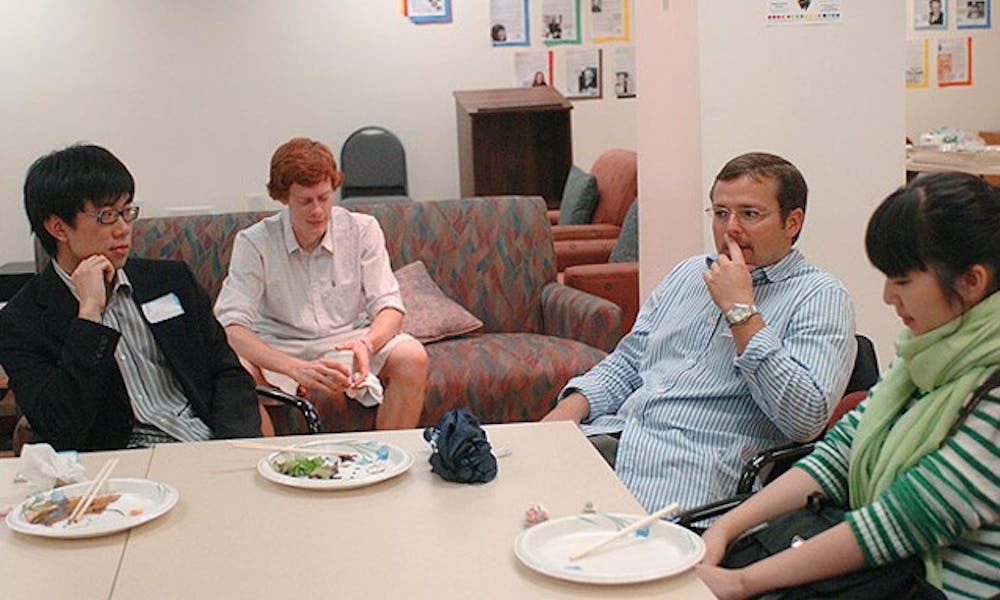After a series of reforms that took place last year, one University program has been silenced for the academic year.
Duke Conversations, a program that began in 2005, allowed students to bring guest speakers to campus to host dinners and lead discussions on a chosen topic.
But the program was not fulfilling all of its original goals last year, which led administrators to cancel the program, said Steve Nowicki, dean and vice provost for undergraduate education.
The future of the program is unknown, he added.
“It was a lot of money; it just wasn’t doing what it was hoped to originally accomplish,” Nowicki said. “It was an experiment that wasn’t working the way we wanted it to.”
Nowicki said he consulted President Richard Brodhead— who helped start the program—and Chris Roby, director of the Office of Student Activities and Facilities, in deciding to cancel the program.
This is not the first time administrators have called for a change to the Duke Conversations program.
In 2008, Nowicki convened a review committee to examine the program, which found that a small number of students were inviting a large number of guests. The committee also found that students were sometimes abusing the system by inviting recent graduates.
As a result, the selection process was made more rigorous—a selection committee to review applications was created and the qualifications for applications were made more stringent, Nowicki said.
“[Increasing the selectivity] proved to be really cumbersome. The number of students submitting applications was way too low,” he said. “The bar was too low, now the bar was too high.”
Although Duke Conversations cost the University about $100,000 last year—a decrease from its $150,000 cost two years ago—Nowicki said the program’s hiatus was due to its weaknesses, not because of budget cuts.
“This was definitely not a cost-cutting measure,” he said. “Did it save money? Yes, but it’s marginal savings.”
The number of conversations held last year was also down from previous years. A total of 11 conversations were held last year—six in the Fall and five in the Spring, said Deborah Hackney, OSAF assistant director for student organizations and leadership.
Two years ago, 85 conversations were held, and 40 conversations were expected to be held last academic year, The Chronicle reported last November.
Hackney noted, however, that the selection committee approved more than the 11 conversations which took place last year.
“I think when you raise the stature of who these people are, they are more busy,” Hackney said.
Hackney used Sanjay Gupta, CNN’s chief medical correspondent, as an example.
Gupta’s conversation was approved last November, but orchestrating his conversation was challenging because Gupta was covering the earthquake in Haiti, Hackney said.
Hackney added that attendance at last year’s conversations was also low—especially in the Fall—with at most 15 students attending a Duke Conversations event. Attendance at Spring events increased slightly.
For senior Brooke Kingsland, who has hosted two conversations and served on last year’s selection committee, the Duke Conversations program was important because of her interest in social change. Increased publicity could have improved past conversations, she said.
“It’s a really valuable program, in terms of not just the experience of coordinating an event like that but being able to speak with people on that level,” Kingsland said.
Moving forward, Nowicki said he will involve students in the discussion of Duke Conversations’ future. He noted that he has not heard a lot of student outcry about the elimination of the program for the year.
Michael Gustafson, an associate professor of electrical and computer engineering who served on the selection committee last year, said taking time to evaluate the program was a good idea, adding that changing the name of the program may be a good way to reform it.
“I think the reform [last year] was a good one,” he said. “I understand the reasons for the hiatus and I think the folks that were involved in this are really trying to make the best environment for Duke students possible.”
Get The Chronicle straight to your inbox
Signup for our weekly newsletter. Cancel at any time.

